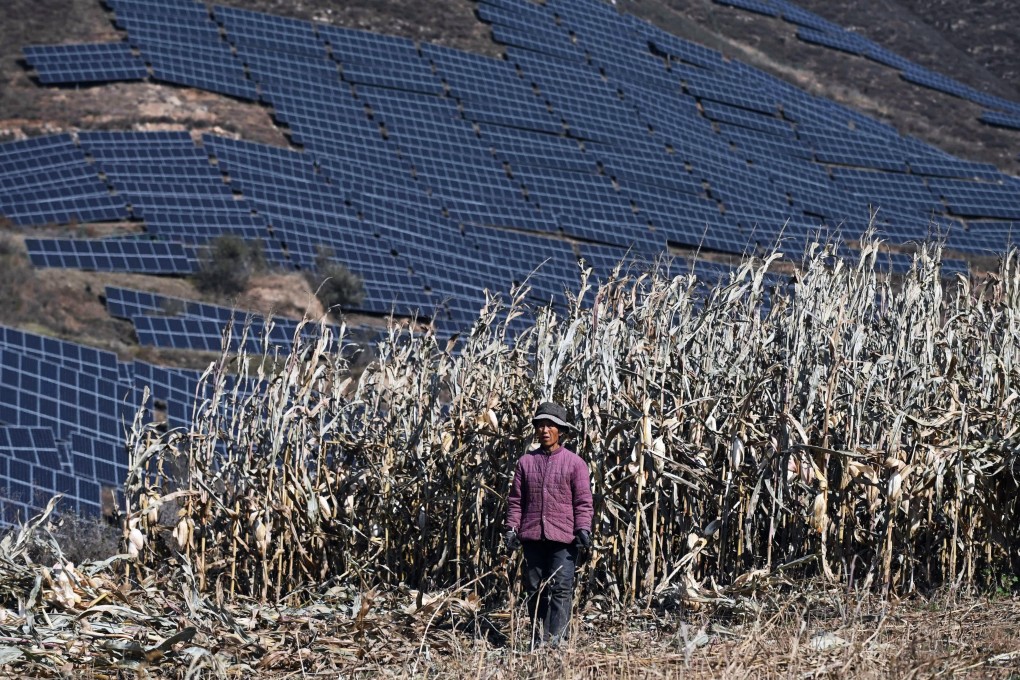China’s solar panel giants ramp up polysilicon capacity to fix supply chain shortages
- After years of falling prices, the cost of the raw material skyrocketed last year as a jump in demand overwhelmed existing manufacturing capacity
- China’s top producers have opened new plants with combined capacity of 160,000 tons a year, adding to the current global capacity of about 620,000 tons

The supply chain snarl that tripled the price of a key raw material for solar panels is about to get fixed, clearing the way for a renewed boom in the use of the clean energy technology.
China is spending billions on new factories to produce polysilicon, used to make photovoltaic cells for solar panels. Global capacity has already been boosted by more than a quarter in the past two months, and it will double by early next year. That should help rein in prices of the material after surging costs slowed the pace of new renewables projects.
As component shortages to a squeeze on shipping drive up prices for everything from natural gas to beef, polysilicon is an example of how some supply woes is likely to prove transitory.
The multibillion expansion of polysilicon capacity will “help to remove a key bottleneck to the solar value chain,” said Tony Fei, an analyst with BOCI Research. “We expect solar panel supply to be vastly boosted in the coming years with declining prices, contributing to decarbonisation of the global energy mix.”
Solar panels are made from ingots of ultra-conductive polysilicon that are sliced into razor-thin wafers, wired up into cells and then assembled into the equipment that is mounted on rooftops or across vast energy farms.
After years of prices falling as companies opened newer and more efficient polysilicon plants, the raw material skyrocketed last year as a jump in demand overwhelmed existing manufacturing capacity. By late 2021, polysilicon was trading at a 10-year high.
Prices have already come off 17 per cent since November after Tongwei Co, Daqo New Energy and GCL-Poly Energy Energy Holdings – among the key global producers – opened new plants or lines with combined capacity of 160,000 tons a year, adding to a current global fleet of about 620,000 tons, according to BloombergNEF data.